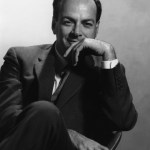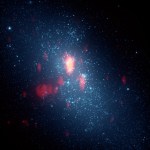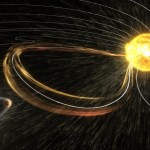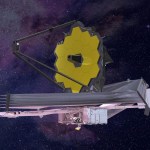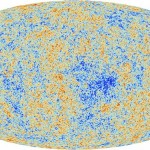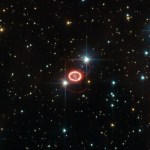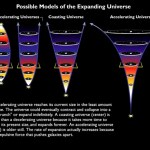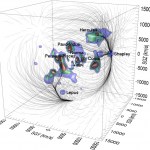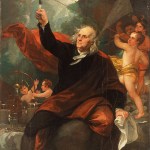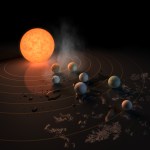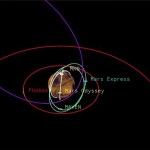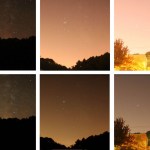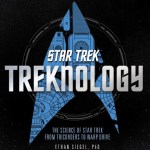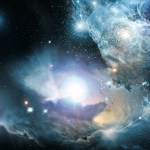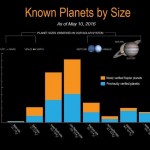
"If you haven't found something strange during the day, it hasn't been much of a day." -John Archibald Wheeler
Today, we take the existence of gravitational waves for granted. They were predicted by Einstein almost immediately following the first publication of general relativity, they were indirectly detected decades ago and they’ve been directly detected multiple times by the different LIGO observatories. Yet Einstein and his former student argued, back from the 1930s through the 1950s, that the waves were mere mathematical artifacts, and didn’t physically exist.
Richard Feynman, at…
"A bird cannot fly with one wing only. Human space flight cannot develop any further without the active participation of women." -Valentina Tereshkova
Sally Ride was the first American woman in space, launched aboard the space shuttle Challenger in 1983 amidst controversy. At 32, she was the youngest astronaut in history, surrounded by questions such as “will it ruin her reproductive organs,” “what if she’s menstruating” and “will she weep if something goes wrong on the job?” But 20 years prior, cosmonaut Valentina Tereshkova proved that women had every bit as much mettle and…
“A theory is a supposition which we hope to be true, a hypothesis is a supposition which we expect to be useful; fictions belong to the realm of art; if made to intrude elsewhere, they become either make-believes or mistakes.” -G. Johnstone Stoney
It's been another exciting week here at Starts With A Bang! This coming Thursday, I'll be speaking at Jacksonville University in Florida; if you're around that area come and say hello! Before we get any further, I'm pleased to announce that thanks to two very generous new Patreon donations from Ryan Schultz and Samir Kumar (shout-out!), we…
"For the first time we can learn about individual stars from near the beginning of time. There are surely many more out there." -Neil Gehrels
We know what NASA’s James Webb and WFIRST are designed for, and we know what we expect to find. James Webb will be the largest space telescope ever, focused mostly on infrared observations probing exoplanets, star-forming nebulae, galaxy evolution and the first stars and galaxies in the Universe. WFIRST will be just like Hubble, except with better instruments and 100 times the field-of-view.
The Hubble eXtreme Deep Field, our deepest view of the…
"Mars' atmosphere is so thin, you do not need a lot of streamlining. By the time the ship is going fast enough for air resistance to matter, it'll be high enough that there will be practically no air." -Andy Weir, The Martian, as spoken by Bruce Ng
If you had taken a trip to our Solar System four billion years ago, you would have found two worlds with liquid water oceans, temperate atmospheres and all the conditions we believe are needed for life. Earth would have been one of them, but Mars would have met all those criteria, too.
A solar storm, which creates aurorae here on Earth, would…
"If we get rid of the moon, women, those menstrual cycles are governed by the moon, will not get PMS. They will stop bitching and whining." -Joe Scarborough, misattributing a quote to Arnold Schwarzenegger that was actually spoken by an impersonator
Our Moon is pretty unusual as far as the Solar System goes: of all the planets, our Moon has the largest mass and radius ratios when compared to its parent planet. It’s enough to not only illuminate our night sky quite fiercely -- the full Moon is 14,000 times brighter than the next brightest object in the night sky -- but it has some significant…
"The [James Webb] telescope is basically designed to answer the big questions in astronomy, the questions Hubble can't answer." -Amber Straughn
Have you ever asked the biggest questions in the Universe? Questions like how the Universe came to be the way it is today? How the first stars and galaxies -- the first light -- came to be in the Universe? Whether Earth-sized worlds around red dwarf stars have atmospheres, possibly with signatures of life? And what the Universe was like when the first stars were just forming? The James Webb Space Telescope was designed to answer these questions and…
“In our description of nature the purpose is not to disclose the real essence of the phenomena but only to track down, as far as possible, relations between the manifold aspects of our experience.” -Niels Bohr
When it comes to galaxies, clusters of galaxies or the largest-scales on the Universe, dark matter is absolutely required. There’s no way to explain colliding galaxy clusters, correlations between different galaxies, the filamentary structure of the Universe or the fluctuations in the Cosmic Microwave Background without it. But it isn’t just dark matter that hopes to solve these…
"When a star goes supernova, the explosion emits enough light to overshadow an entire solar system, even a galaxy. Such explosions can set off the creation of new stars." -Todd Nelsen
In February of 1987, the first light from a supernova some 168,000 light years away was observed on Earth. It became the closest supernova to be observed since the invention of the telescope. As a result, it’s taught us more about massive star death, ejecta and supernova remnant evolution than any other object in the Universe.
The two loop-like structures, identified in this Hubble image from five years ago,…
“I didn't even know there were stars to look at to not see. If you don't know that they're there, you don't know that you're missing them.” -Neil deGrasse Tyson, on light pollution
As with pretty much every week that goes by, we've had a slew of fantastic stories here at Starts With A Bang! There have also been events galore, including two public talks on gravitational waves and the controversy over the expanding Universe, and many upcoming events, including:
March 9th: talks and events at Jacksonville University in FL,
March 24-26: appearances and panels at MidSouthCon in Memphis…
"The history of astronomy is a history of receding horizons." -Edwin Hubble
As you look to greater and greater distances, you’re looking back in time in the Universe. But thanks to dark energy, what we can see and access today isn’t always going to be accessible. As galaxies grow more distant with the accelerated expansion of the Universe, they eventually recede faster than the speed of light. At present, 97% of the galaxies in the Universe aren’t reachable by us, even at the speed of light.
The observable (yellow) and reachable (magenta) portions of the Universe, which are what they are…
"It's the gravity that shapes the large scale structure of the universe, even though it is the weakest of four categories of forces." -Stephen Hawking
Galaxies don’t just exist in isolation in our Universe, but are often found bound together as a part of even grander structures. Our own Milky Way is bound in a galactic group (our local group), nearby are larger groups and galaxy clusters, and on still larger scales, cosmic superclusters appear to encompass as many as 100,000 individual galaxies.
Outlined in light blue, giant collections of galaxies can be divided up into superclusters. But…
"When Benjamin Franklin inveted the lightning rod, the clergy, both in England and America, with enthusiastic support of George III, condemned it as an impious attempt to defeat the will of God." -Bertrand Russell
You’ll often hear charges that science has become too politicized, but it’s the other way around. Science is our best way of drawing conclusions about the natural world, including how natural and human-caused phenomena work and interact together. When politics, biases, agendas or predispositions get in the way, however, they can derail actual knowledge and cause us to live in an…
"It isn't only the beauty of the night sky that thrills me. It's the sense I have that some of those points of light are the home stars of beings not so different from us, daily cares and all. who look across space with wonder, just as we do." -Frank Drake
What is it that makes our Solar System special? It’s Earth, of course. A rocky planet of the right mass and composition, the right distance from our Sun, the right atmosphere, the surface oceans, and all the life that’s ensued is what makes us special. Not just special, but unique, at least among the planets we’ve found so far.
The orbits…
"The larger inner moons fall back to Mars after about 5 million years due to the tidal pull of the planet, after which the two outer satellites evolve into Phobos- and Deimos-like orbits." -Pascal Rosenblatt, et al.
Compared to the other moons we know of in the Solar System, Mars’s two, Phobos and Deimos, are incredibly difficult to explain. They look like captured asteroids, being small, irregular, and exhibiting the right surface features. But captured asteroids form inclined or even retrograde orbits quite distant from their planet, while Phobos and Deimos live in circular,…
"Before we devised artificial lights and atmospheric pollution and modern forms of nocturnal entertainment we watched the stars. There were practical calendar reasons of course but there was more to it than that. Even today the most jaded city dweller can be unexpectedly moved upon encountering a clear night sky studded with thousands of twinkling stars. When it happens to me after all these years it still takes my breath away." -Carl Sagan
For all of human history, we’ve battled against the limitations of our bodies and the natural world. That’s led to the development of artificial lighting…
“We think we've come so far. Torture of heretics, burning of witches, is all ancient history. Then, before you can blink an eye, suddenly, it threatens to start all over again.” -Captain Picard
It’s been another remarkable week here at Starts With A Bang! Of course there's been news, science, physics and astronomy galore, but the biggest news on my front is that my next book has been officially announced by Star Trek!
Book cover for my new book: Treknology. Image credit: Voyageur Press / Quarto Publishing Group.
You can pre-order it already at Amazon, and we have an official…
"I really didn't have to work, shall we say, with Star Trek. It was a natural. When I opened my mouth, there was Scotty. It's like I tell people what you see in Scotty is 99% James Doohan and 1% accent." -James Doohan
So, your friend on the USS Enterprise beamed you aboard, took you on a relativistic journey at impulse speeds around the Solar System, and brought you back to your starting point. You find that less time has passed for you than your family who remained on Earth, yet you’ve traveled a much greater distance. How does this all work?
Moving close to the speed of light results in…
"It is the function of science to discover the existence of a general reign of order in nature and to find the causes governing this order. And this refers in equal measure to the relations of man - social and political - and to the entire universe as a whole." -Dmitri Mendeleev
When the Universe was first born, all we had was hydrogen and helium, with a trace amount of lithium and absolutely nothing else. 13.8 billion years later, hydrogen is still #1 in the Universe and helium is still #2, but lithium isn’t close to #3 anymore: more than two dozen elements have passed it. The key? Stars!…
"How vast those Orbs must be, and how inconsiderable this Earth, the Theatre upon which all our mighty Designs, all our Navigations, and all our Wars are transacted, is when compared to them." -Christiaan Huygens
It was quite a surprise when we started discovering all the exoplanets that were out there. While there’s a big gap between a world like Earth and a world like Uranus or Neptune in our Solar System – 17 times the mass and 4 times the radius – most of the worlds out there fall in between these two types. Super-Earths and Mini-Neptunes are the most common.
The numbers of planets…
